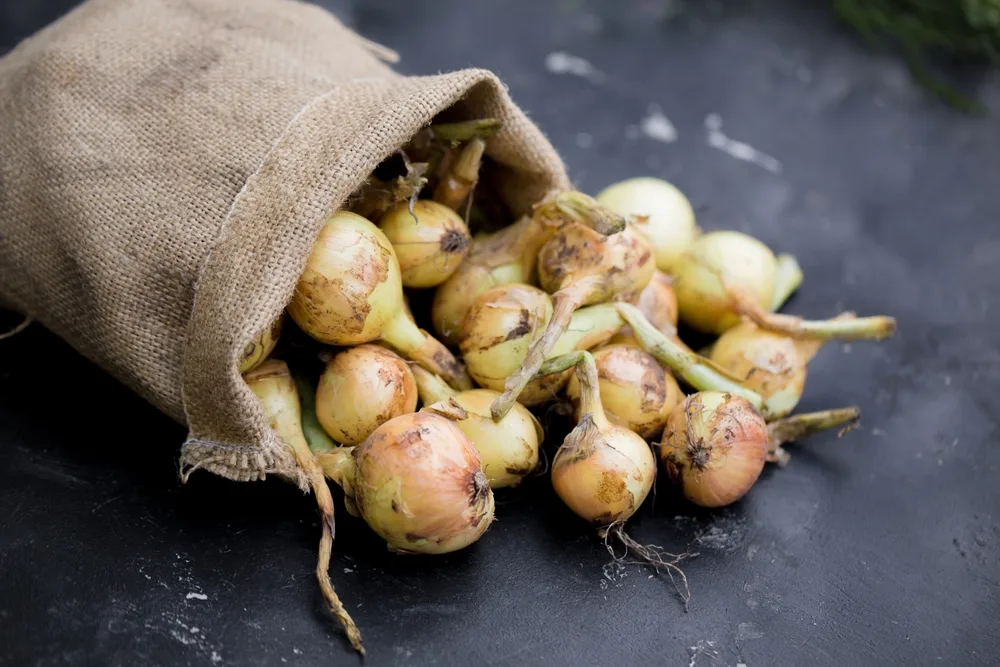When it comes to storing onions, some types last longer than others. Onions high in sulfur, which often have a strong taste, store well for months.
Good options for long-term storage include ‘Stuttgarter’, ‘Yellow Globe’, ‘Copra’, ‘Patterson’, ‘Redwing’, and ‘Ebenezer’.
These types, except for ‘Redwing’ and ‘Ebenezer’, are hardy in zones 3-9. Your local extension office can help you choose the best varieties for your area.
When to Harvest Onions

The best time to harvest onions is when about half of the leaves have died back.
As onions mature, they pull nutrients and sugars from the leaves into the bulbs, causing the leaves to wilt and the tops to fall over. Don’t wait until all the leaves have fallen, as this can make the earlier-maturing onions overripe.
To harvest, loosen the soil around the plants with a garden fork and gently lift the bulbs out. Brush off the excess dirt but leave the leaves attached.
Removing the leaves too soon can make onions more prone to rot.
Curing Onions
Curing onions properly is essential for long-term storage. The outer layers need to dry out to protect the inner bulb from decay.
You can cure onions outside if the weather is dry by laying them on the soil or a clean, dry surface. Don’t wash them, just brush off the loose dirt.
Avoid excessive heat or moisture during curing. Moderate warm and dry conditions are best.
Alternatively, you can cure onions in a well-ventilated garage, shed, or covered porch. Aim for temperatures below 85°F for two to four weeks.
How to Know When Onions Are Cured
Onions are well-cured when the outer skins are dry and make a rustling sound when moved. The necks should feel dry and not slippery.
Once cured, brush off any remaining dirt and loose layers. Cut the tops about an inch above the bulb and trim the roots. Use any onions that are damaged or haven’t cured properly right away.
Storing Onions
For long-term storage, onions do best at 32°F with 65-70% humidity. At home, storing them in a cool barn or garage is usually sufficient. Avoid high temperatures and direct sunlight, as these can cause sprouting.
Place onions in trays, open bins, mesh bags, wire baskets, or crates to ensure good airflow.
Check them regularly and remove any that show signs of rot. Do not store onions near potatoes or apples, as these produce ethylene gas that can cause onions to sprout.
By harvesting, curing, and storing your onions correctly, you can enjoy them for many months. This way, you’ll always have fresh onions on hand for your favorite dishes.
